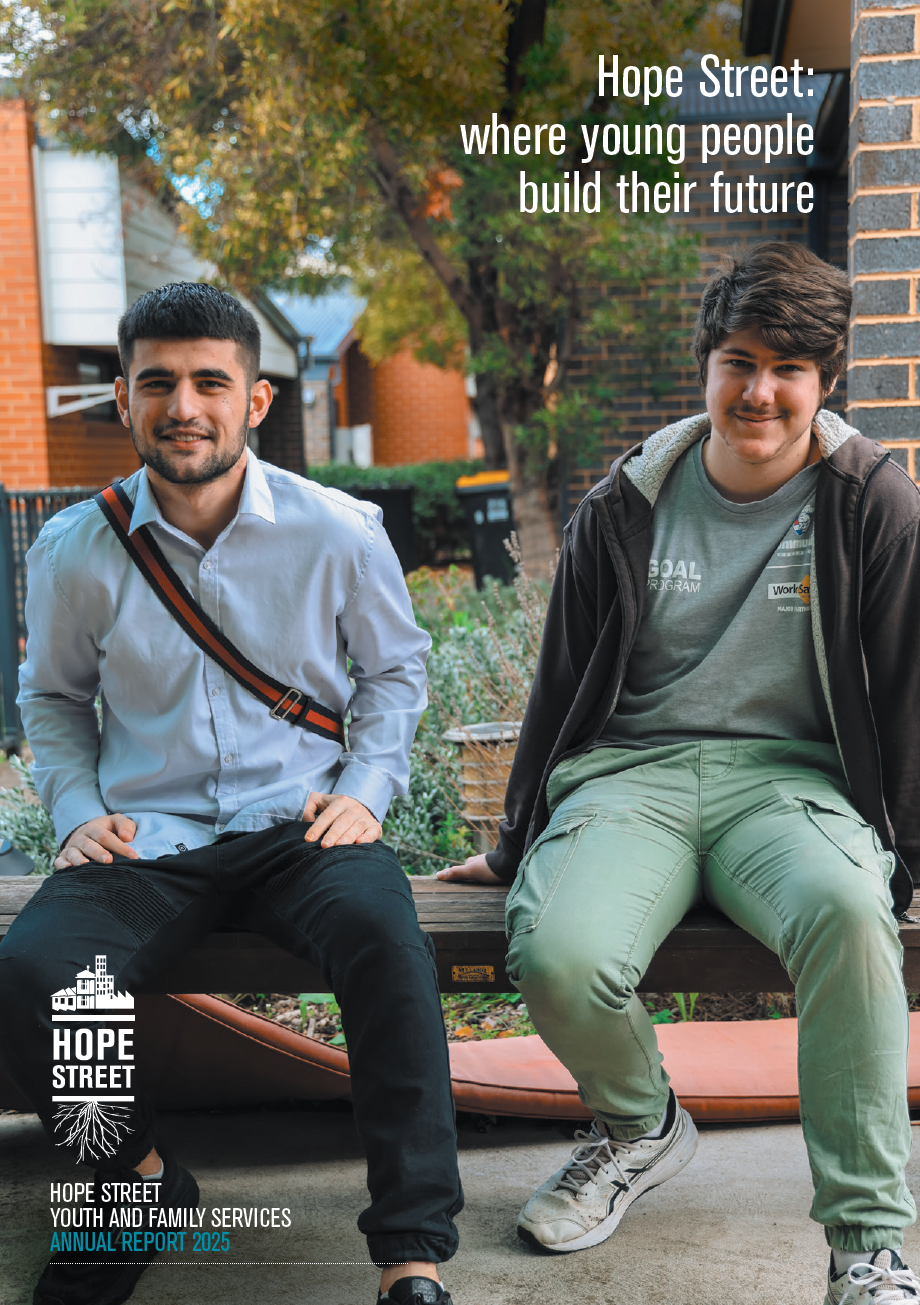Young people learn essential cooking skills at Hope Street
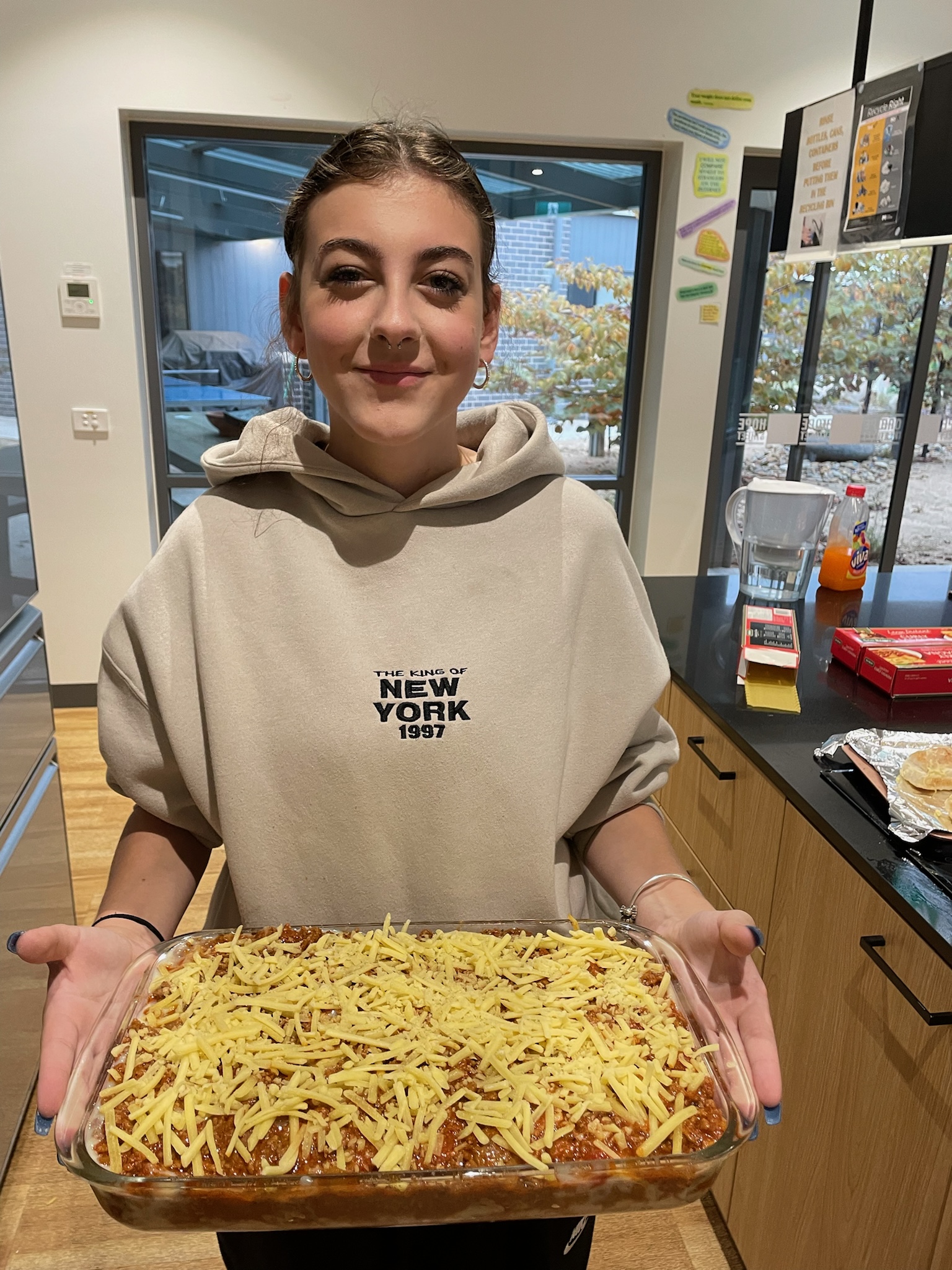
Learning to budget, plan meals, grocery shop and cook are vital for young people’s development towards independence.
Hope Street fosters a supportive and nurturing environment for young people to learn essential living skills such as cooking, nutrition and meal preparation on a very lean budget.
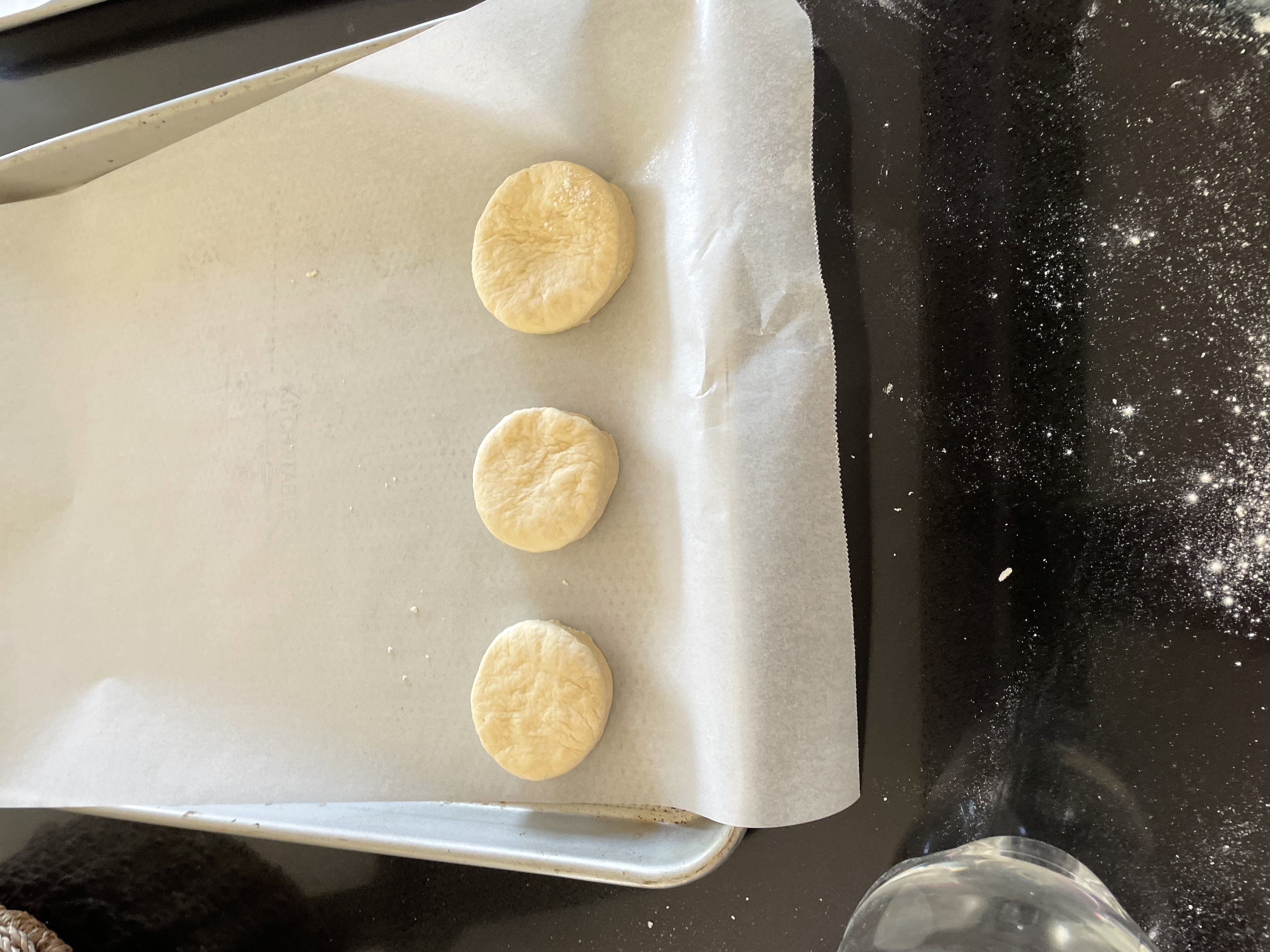
Being homeless young particularly when sleeping rough means young people do not have access to a kitchen to store or cook food and end up eating unhealthy fast food. It is an incredibly disruptive situation for young people, furthermore, barriers to food security especially cost, creates further stress and poor health on young people who are already highly distressed and traumatised by the situation of no so place to live.
Hope Street’s service ensures that young people can always access groceries and participate in cooking lessons to build their skills and knowledge in the kitchen making delicious and nutritional food with confidence. Young people are always encouraged to share their cooking knowledge and abilities with each other in the Hope Street Living Skills 101 programs. A highlight of this, is young people cooking meals that reflect their cultural background. Being able to cook culturally familiar meals is comforting for the young person cooking and very much enjoyed by the other residents of the programs when sharing a meal. It is also a positive step in promoting understanding and awareness of other cultures.
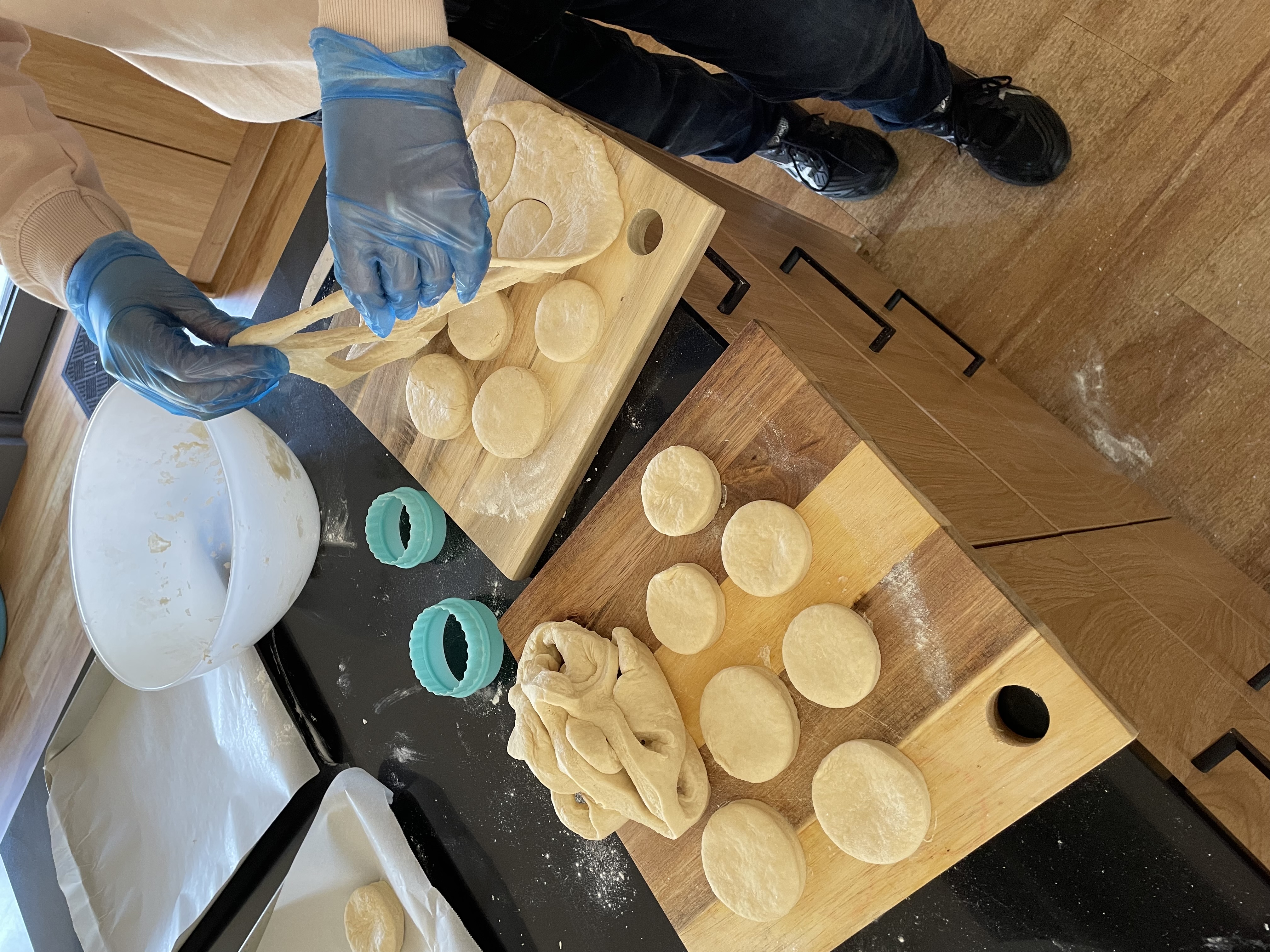
Most importantly, Hope Street’s youth refuges in Melton and Brunswick, as well as the transitional housing in Melton and Thomastown, provide full pantries that are well stocked with a variety of ingredients for meal preparation to be selected and enjoyed.
Young people are also able to receive vouchers for grocery items to go shopping and select which meals and snacks they’d like to enjoy. Fresh scones and homemade lasagne were on the grocery list to be made from scratch this month!
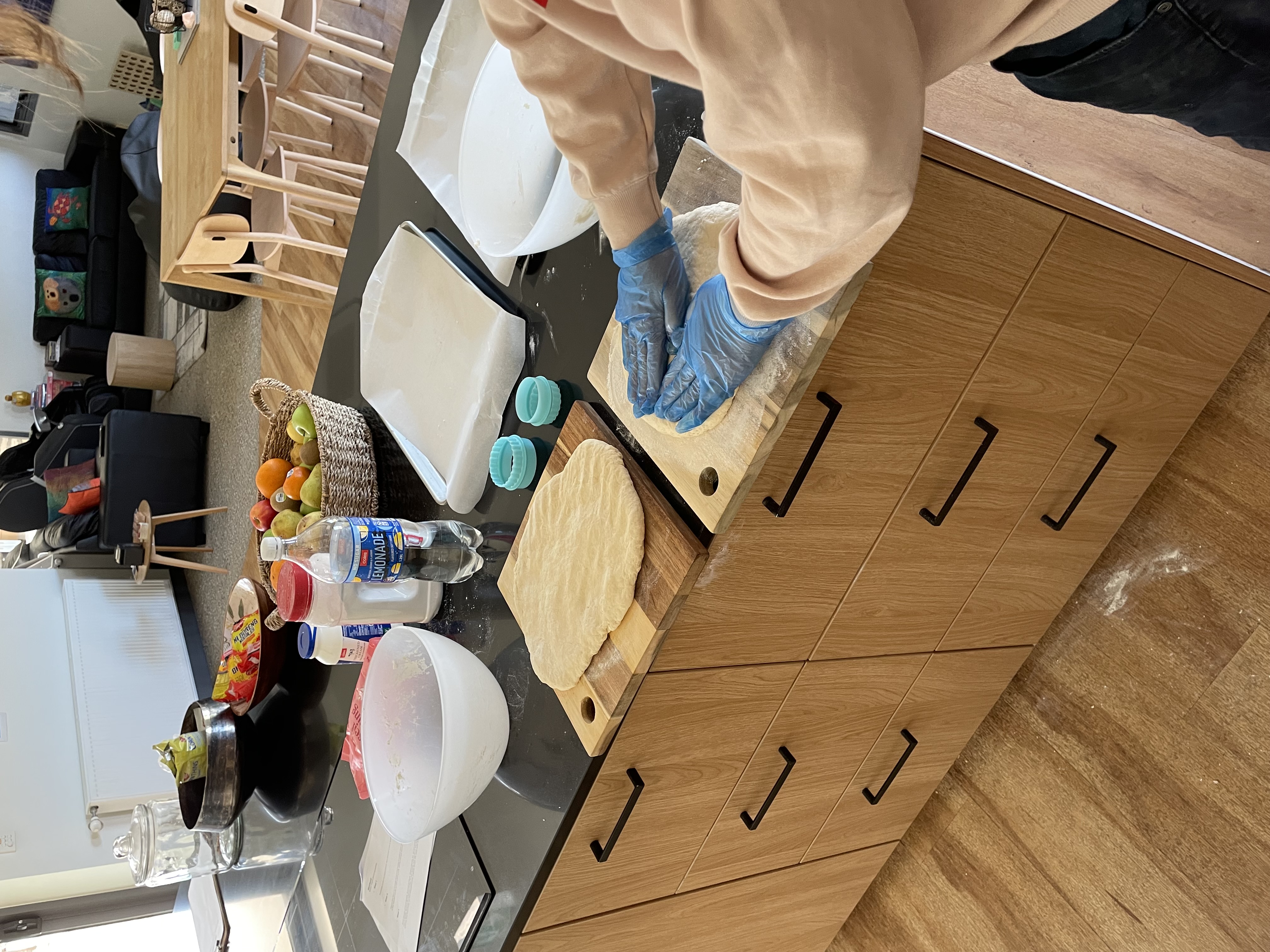
Recently Juliette* and Amy* were able to learn how to make lasagne from a recipe book at the Melton First Response Youth Refuge. Layered with fresh pasta sheets, cheese sauce and tomato-based mince, this comfort food was enjoyed by all young people onsite.
On the weekend a young mum at the Melton refuge family unit chose to make afternoon tea with a scone recipe to be served with fresh whipped cream and jam.
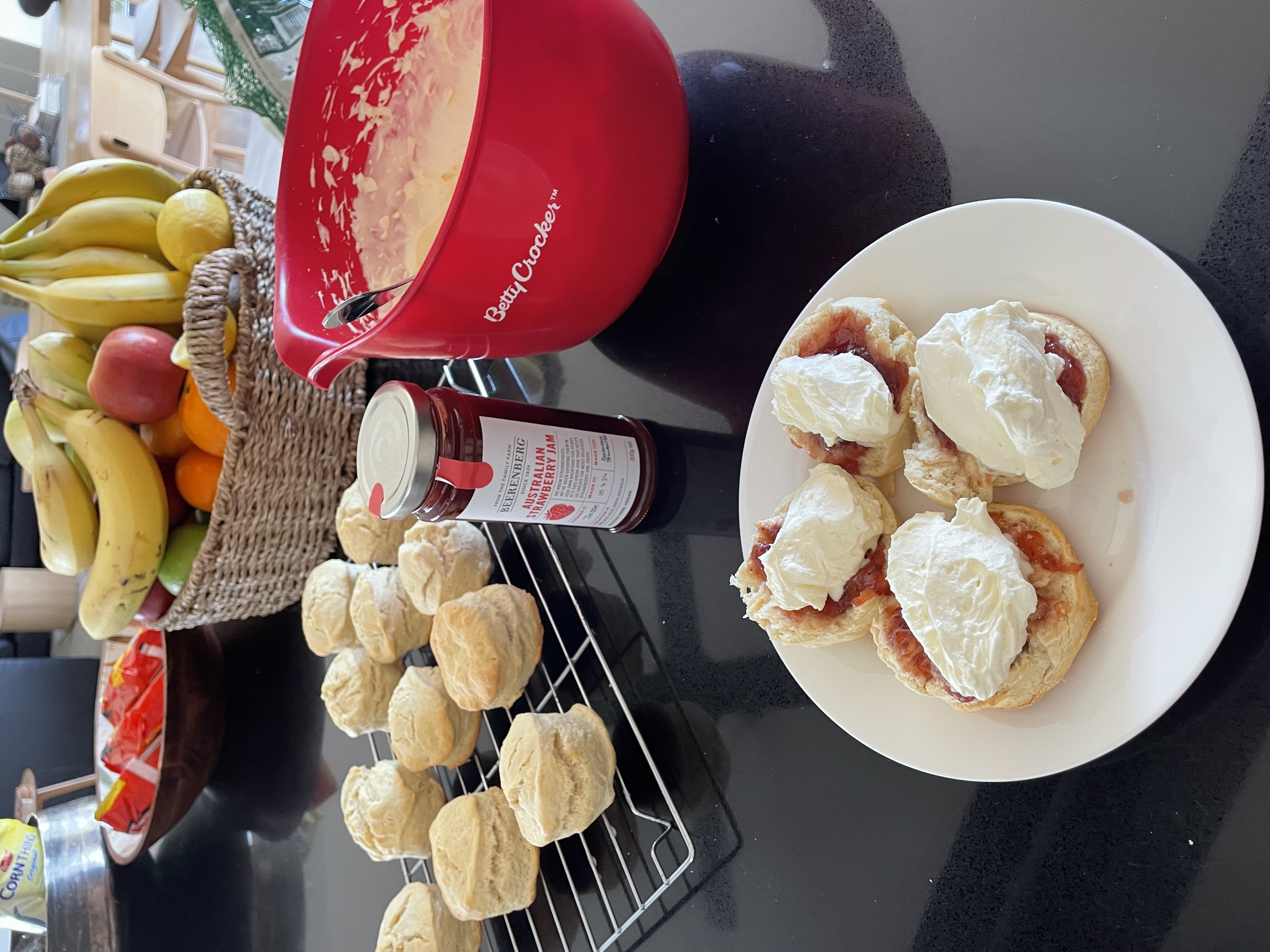
Providing a comfortable and safe environment for young people to develop and test their cooking abilities is foundational to Hope Street’s offer to help young people achieve their goals and become more confident with being independent.
*Names have been changed to protect privacy.
In the heart of Melton, Cadet Gi, proud Koorie and Bungala person is making significant strides at the Hope Street First Response Youth Service. Gi has found a meaningful placement while completing his Bachelor of Social Work (honours), working within the community, specifically engaging with First Nations youth.
The journey to the Warumilang Program cadetship has been challenging and rewarding, underscoring the importance of cultural safety and community support in social work.
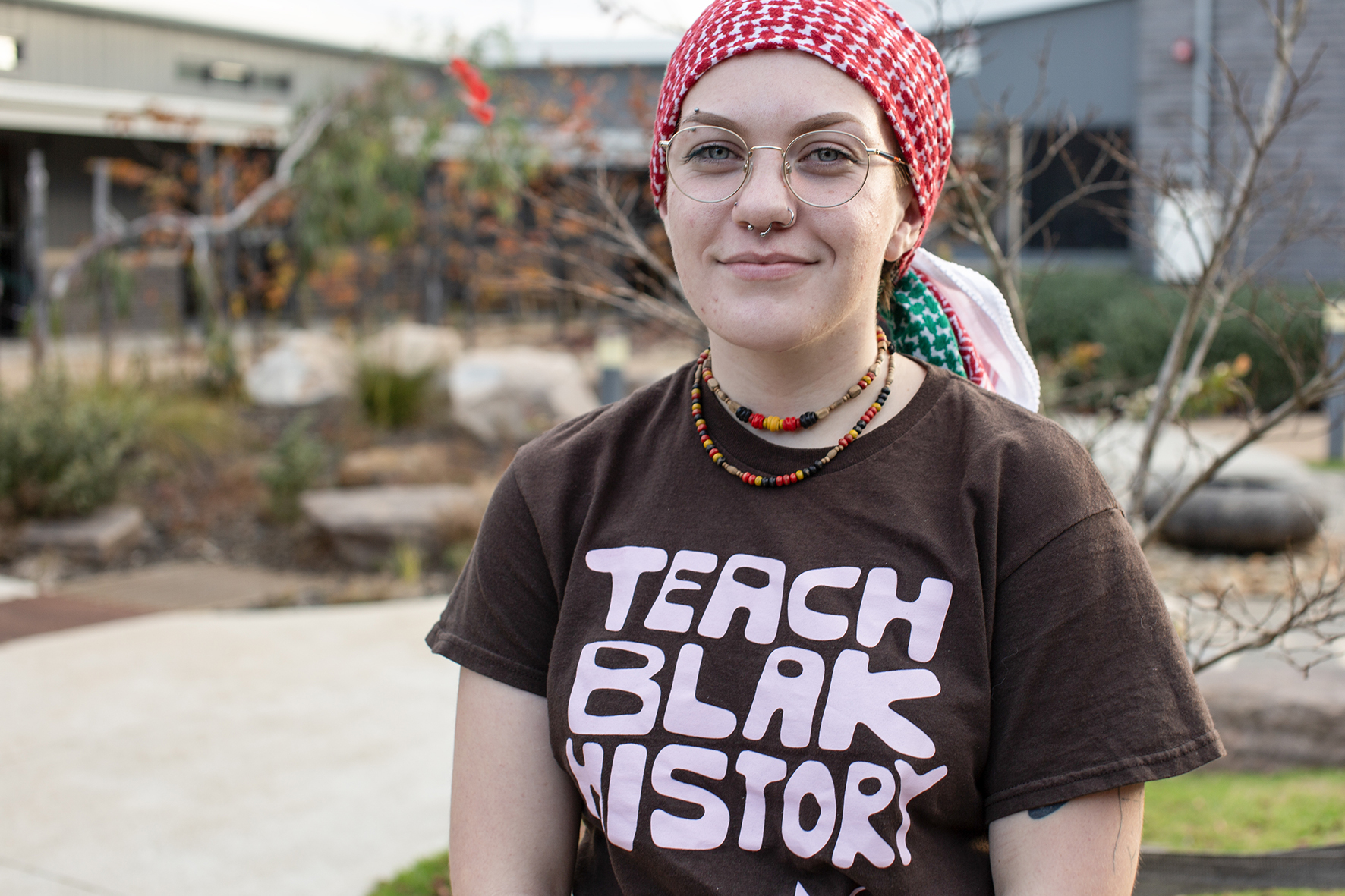
Gi’s quest for a culturally safe placement led them to seek alternatives to his initial options.
I needed to complete a placement and I didn’t really like my placement options – I didn’t think they were very culturally safe.
Gi’s determination to work within his community was clear:
I really wanted to do my placement working in community with Mob.
The cadetship opportunity through (AFL SportsReady and offered by Hope Street) was recommended to them when Hope Street connected with RMIT University. It includes financial support—an essential factor given the demanding nature of social work placements.
The financial support while completing a cadetship was something that stood out to me. Because by completing my placement I would be doing unpaid work and for social work, it is over 1000 hours which is the equivalent of over six months full-time work.
Getting paid during my placement/cadetship is beneficial for me.
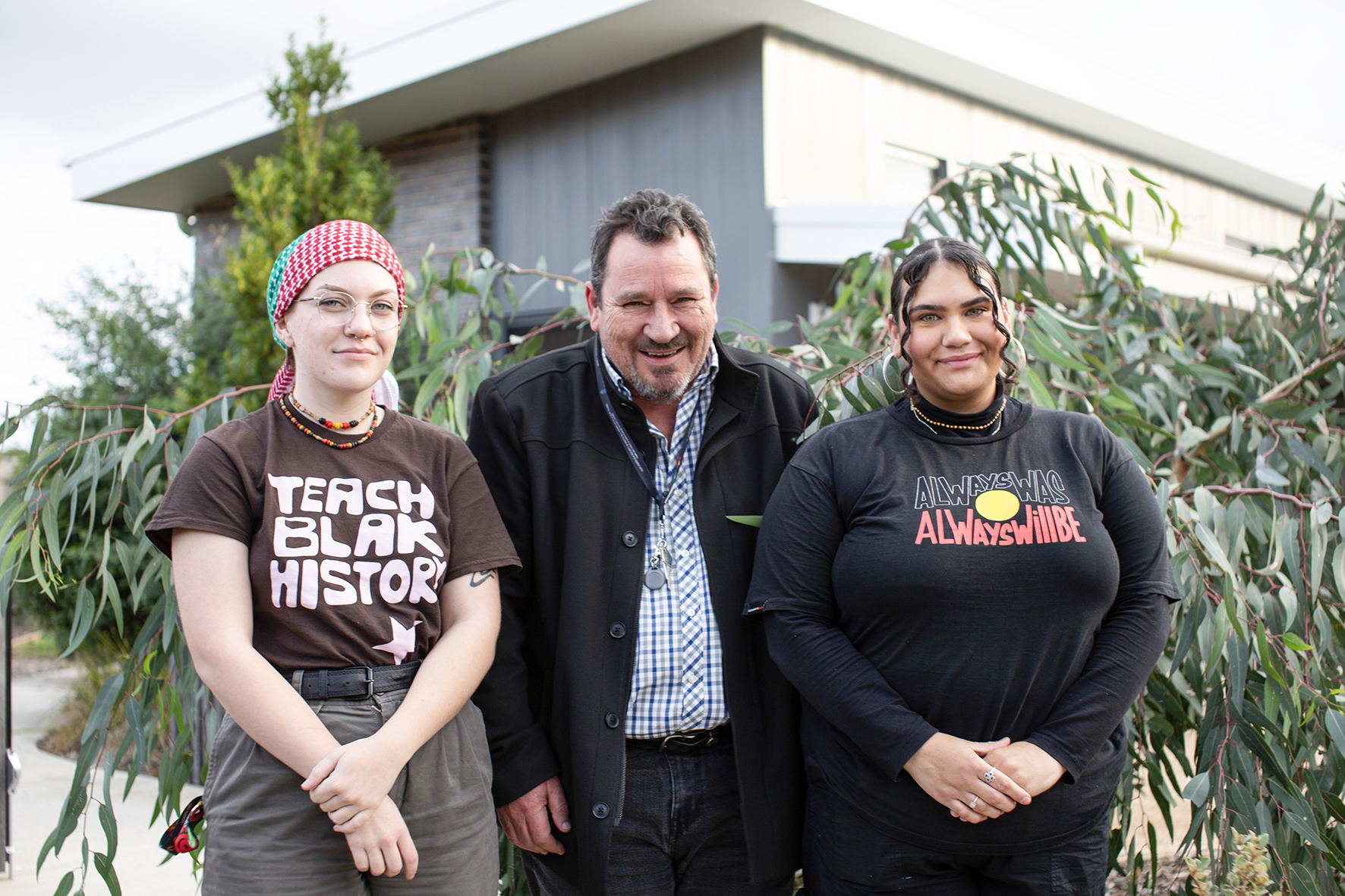
Gi’s experience at Hope Street has been overwhelmingly positive. They have praised the supportive environment fostered by the team, especially highlighting colleagues Gary and Jordy.
The staff here are so supportive. It is definitely one of the best workplace cultures I have experienced.
I think that I was embraced by the team instantly and have had the opportunity to learn a lot about the sector from a practitioner point of view.
With over a decade of personal experience as a service user in the homelessness sector. Gi brings a unique perspective to the role.
It has been interesting learning about the other side of it – which has been really beneficial for me.
This hands-on experience is invaluable in helping them understand the complexities and challenges of the sector. Particularly from a practitioner’s viewpoint.
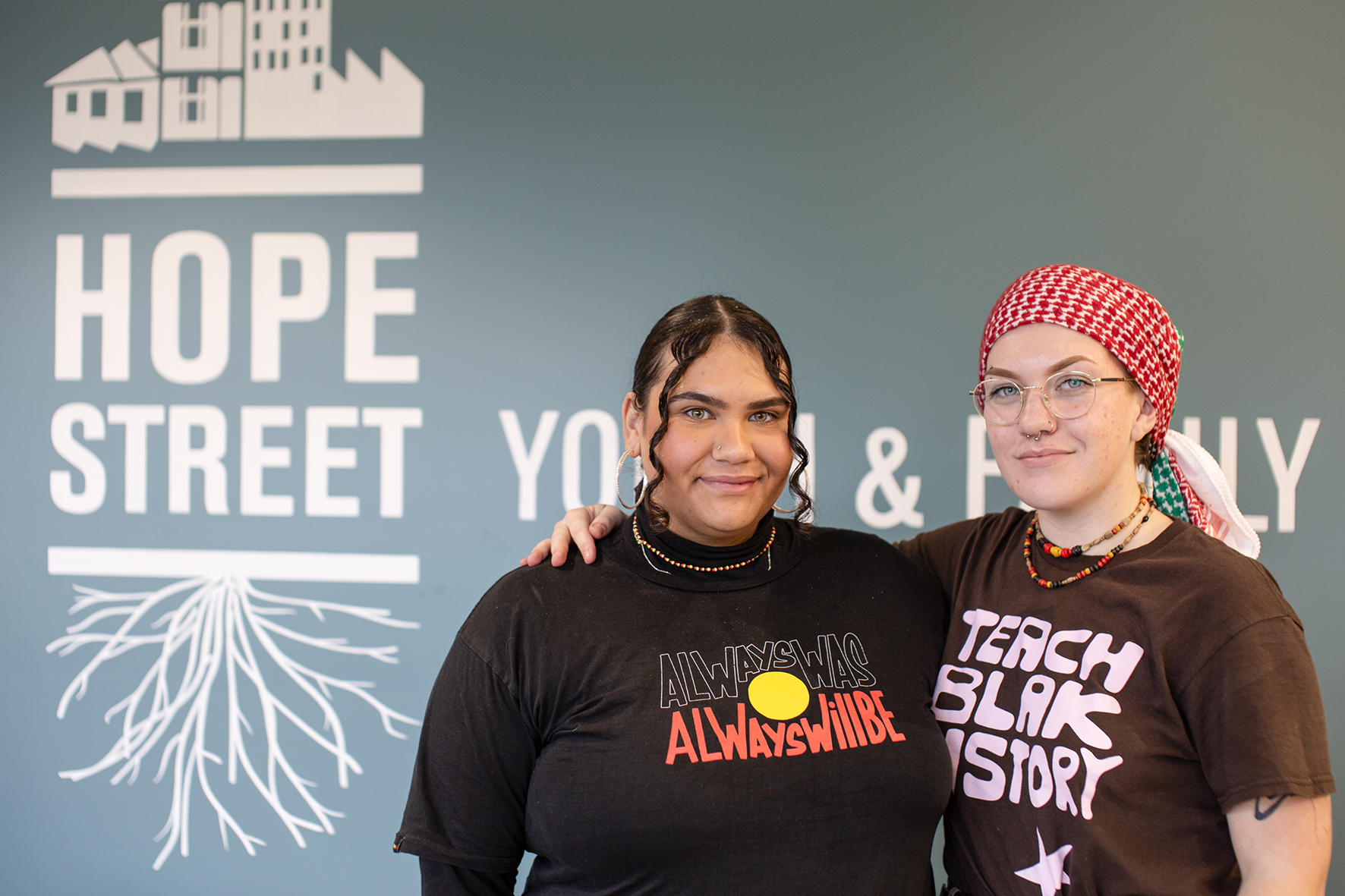
Gi is passionate about providing one-on-one support and being directly involved in helping people. They have thrived in this aspect of the cadetship, noting the importance of having practitioners with lived experiences.
I feel like it is really helpful having a young person as part of staff who has that lived experience when trying to relate to the young people that come through Hope Street’s programs.
Especially young First Nations people, the last thing you want to do is open up your life to some stranger who doesn’t get it – just to be re-traumatised.
However, the role comes with its challenges. The transient nature of the service users.
Often service users only stay for around six weeks. This can make it difficult to build lasting relationships.
The most challenging part of my cadetship has been that due to the service model you can start the work and before you know it the work you started is over.
Additionally, the reality of young people choosing to self-exit can be tough. You can be working with them, and then when you show up the next week, they are no longer there.
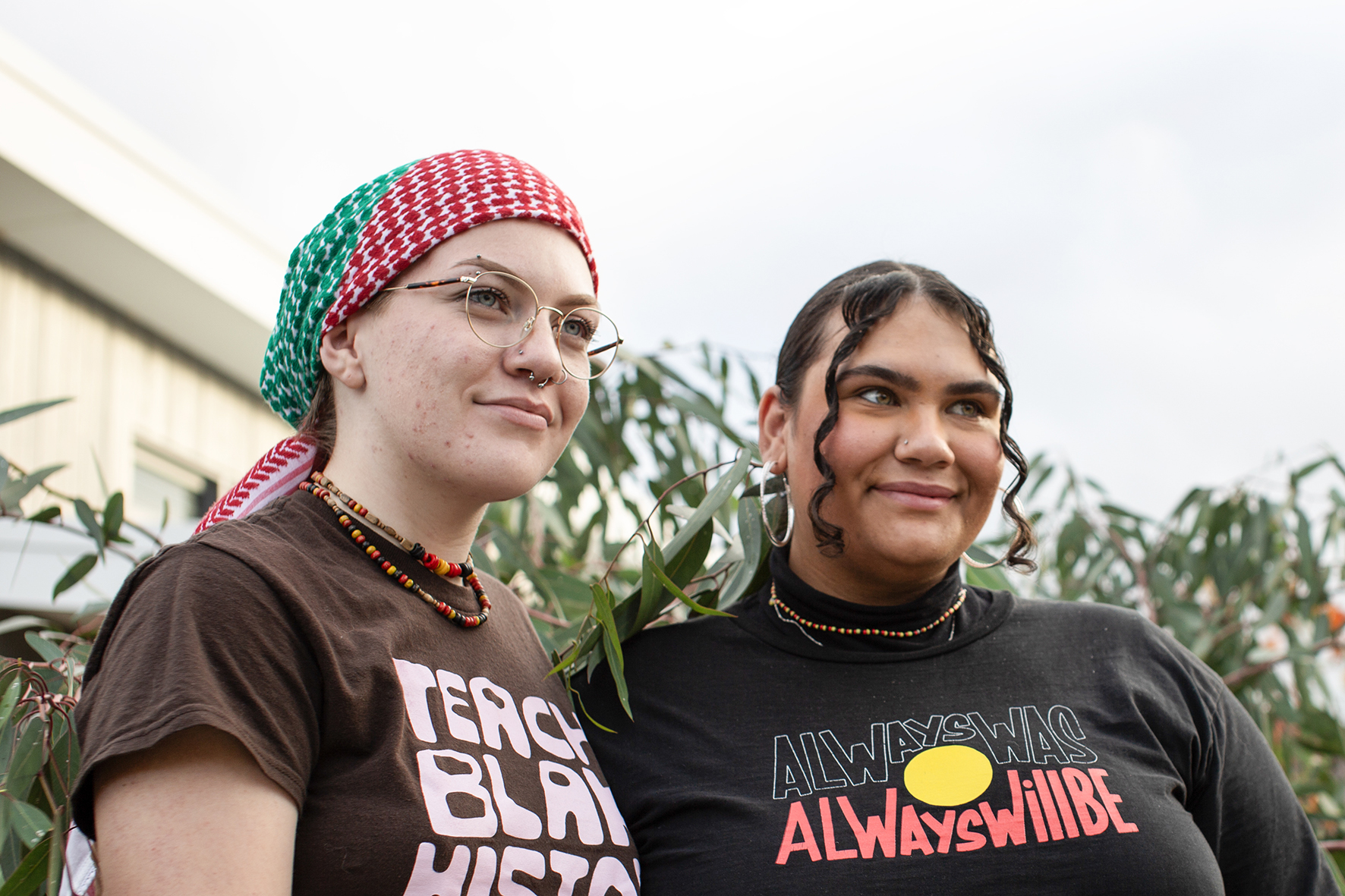
Despite these challenges, Gi remains steadfast in their commitment to community. They emphasise the need for a focus on First Nations service users, who constitute a significant portion of the homeless population.
It is one thing to access the services, but the knowledge about what services are available in First Nations communities is so limited.
Driven by personal and generational experiences of trauma and oppression. Gi is dedicated to making a positive impact through social work.
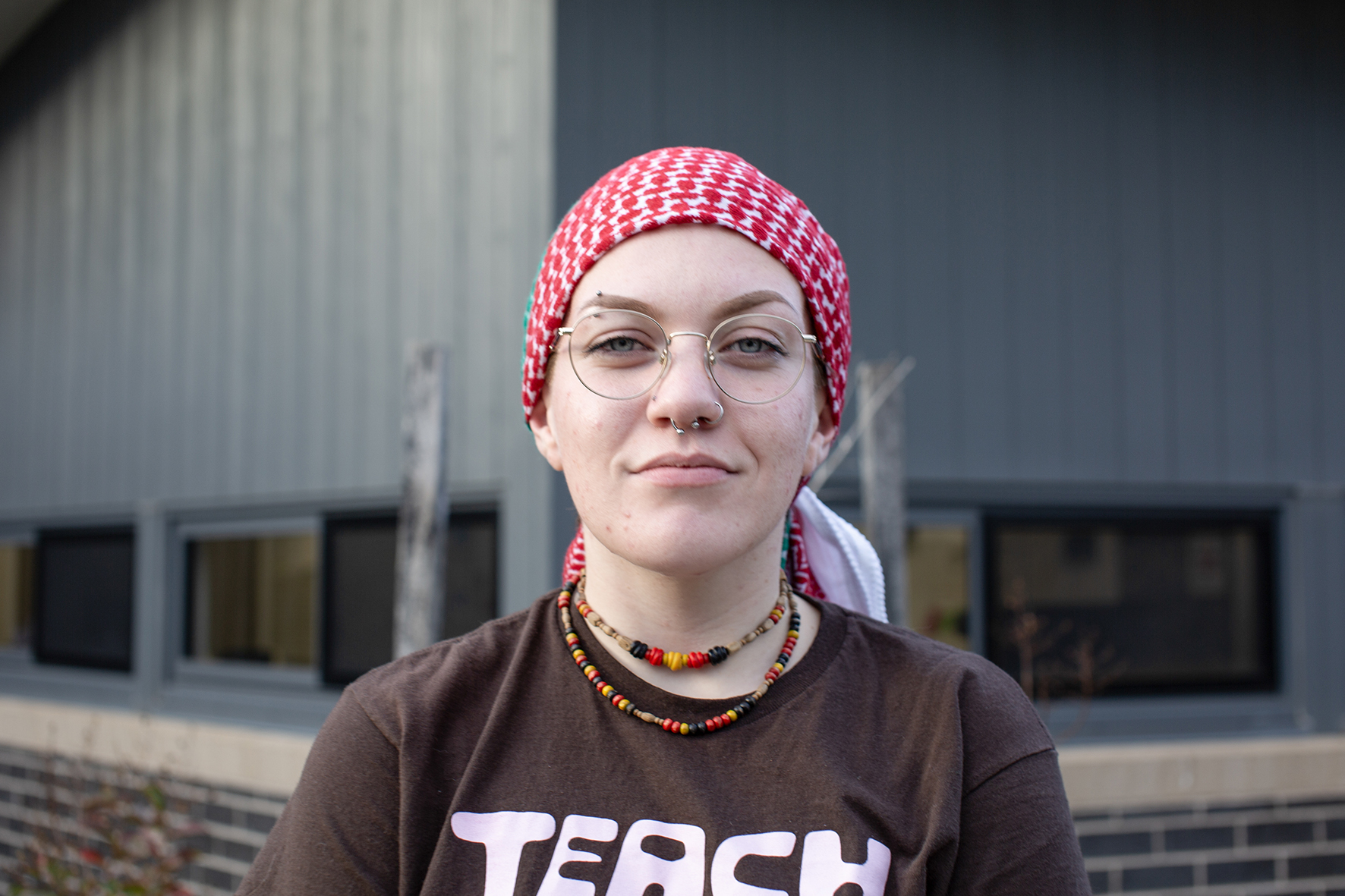
Having a lot of life experiences and generational trauma/oppression that has been experienced by my family has set me on this social work path.
If I can help even one young Black kid avoid what I went through, then I have done something beneficial.
Community is who we are as First Nations people.
Gi’s journey at Hope Street is a testament to the power of lived experience, cultural safety and community support in social work. His dedication and passion in paving the way for more inclusive and effective support systems for First Nations youth in the homelessness sector.
Sam Rae MP sees impact of Hope Street in Melton!
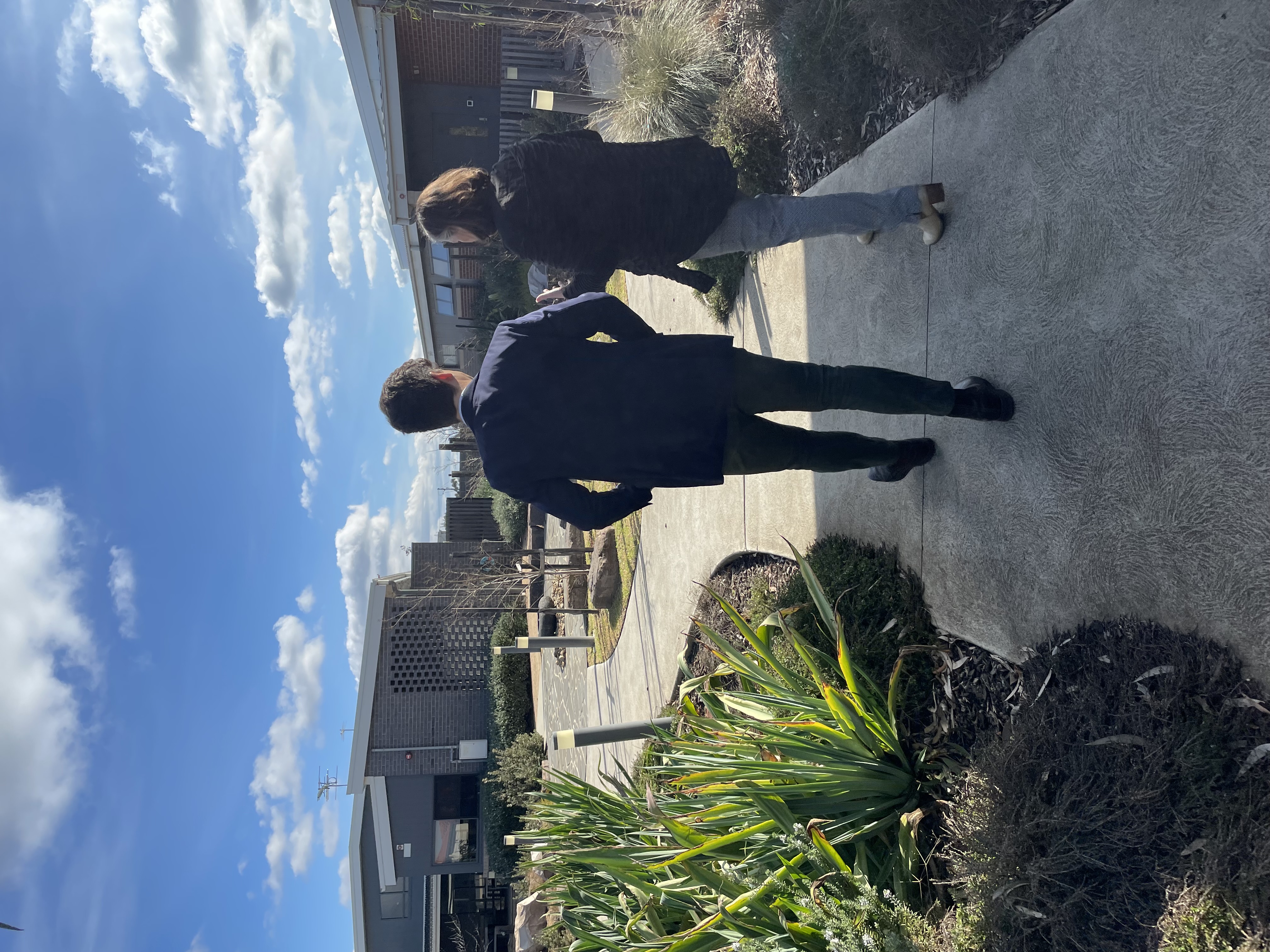
“The dedicated staff at Hope Street First Response Youth Refuge in Melton do an incredible job around the clock to keep some of the most vulnerable people in our community safe. The work that they do in providing a place to recover and rebuild is incredibly important. Visiting Hope Street in Melton reinforced my commitment to support their efforts.” - Sam Rae MP.
Federal Member for Hawke, Sam Rae MP has recently visited Hope Street’s First Response Youth Service Refuge in Melton to tour the facilities and see this nation leading response to child and youth homelessness operating in the local community.
The First Response Youth Refuge Service is vital for Victoria to provide high quality emergency frontline support and accommodation for young people (16-25) and their children experiencing homelessness. Hope Street’s well trained and qualified staff provide 24-hour support to young people and their children. It has been in operation since August 2020 and is a centre piece of place-based partnerships in the local community. Since establishment in 2018 (operating from an interim location), the First Response Youth Service has provided support to over 915 clients. For young parents, 94% have an improved connection to community services. Over 90% had increase in the level of safety of their children. One client Sarah expressed that, ‘Hope Street helped me navigate through difficult decisions I had to make. They helped me with baby things, food vouchers and moral support.’
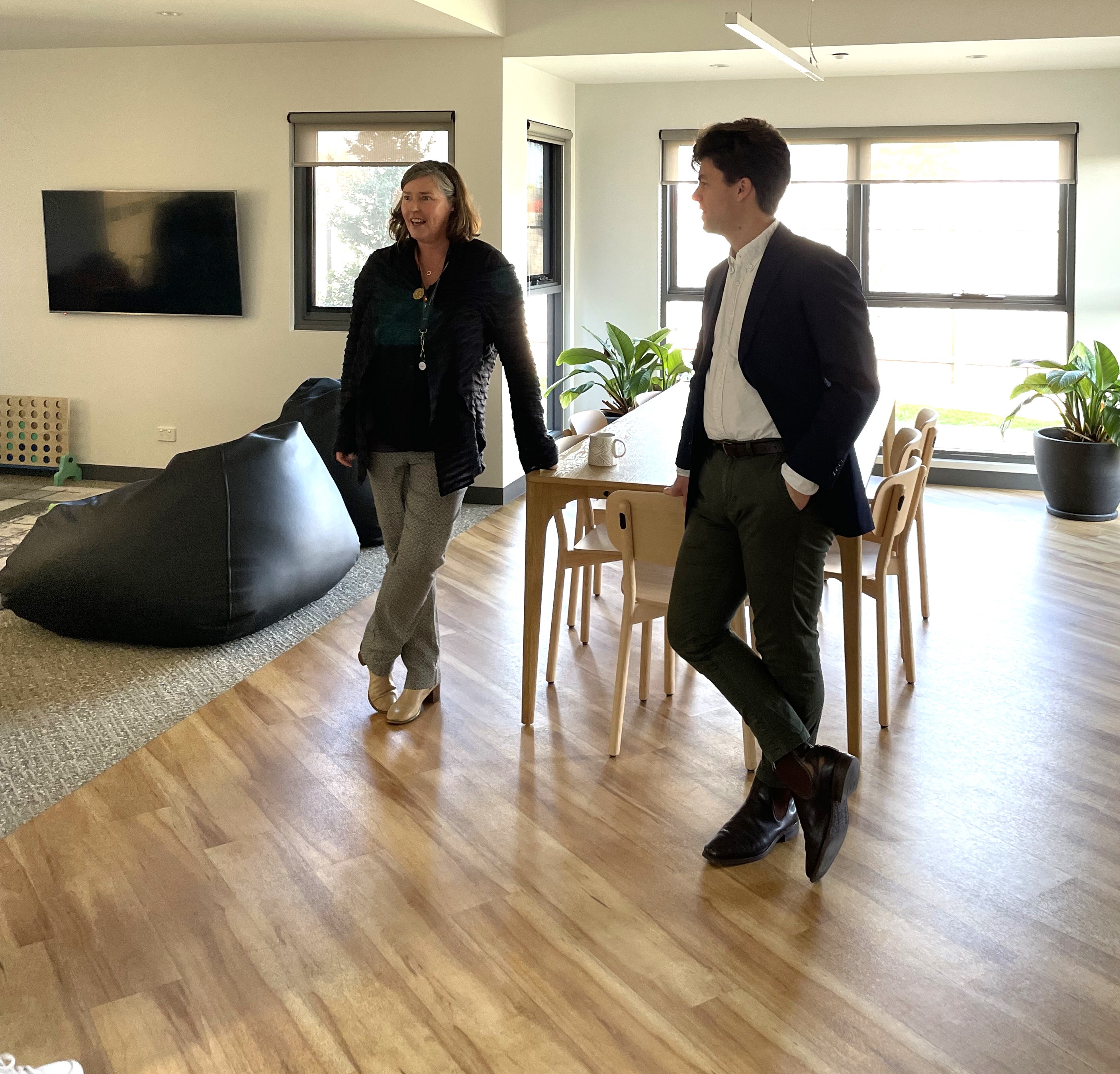
Sam was able to see the impact of well-designed solutions to homelessness with frontline service staff and discuss the realities facing vulnerable young people and their children. For those at risk of experiencing homelessness, a safe place to sleep, eat and live is their right. For young people and young families that have experienced the trauma of domestic and family violence, poverty,disadvantage and a housing crisis which has led to homelessness, the need for support to feel safe and secure is vital to addressing their needs within the community.
Sam was able to discuss how young people are supported by experienced frontline staff at Hope Street with Aoife, a Case Manager with experience in working with young people in Ireland and Australia. Sam was able to see first-hand how the First Response model includes key elements of an assertive mobile outreach service and a ten bed (including independent family unit) youth (16-25 years) supported crisis accommodation (refuge) with youth centred case management support. The importance of providing high quality accommodation for young people and young families in Melton at Hope Street was highly valued by Sam.
The First Response refuge is a modern facility, and its architectural design was shaped by extensive consultation and research. Unsurprisingly, the significant investment of time, money and therapeutic design in developing the refuge has resulted in a high quality, state-of-the-art refuge environment. It offers a safe and positive living environment for clients, is sensitive to trauma, and supports effective service delivery.
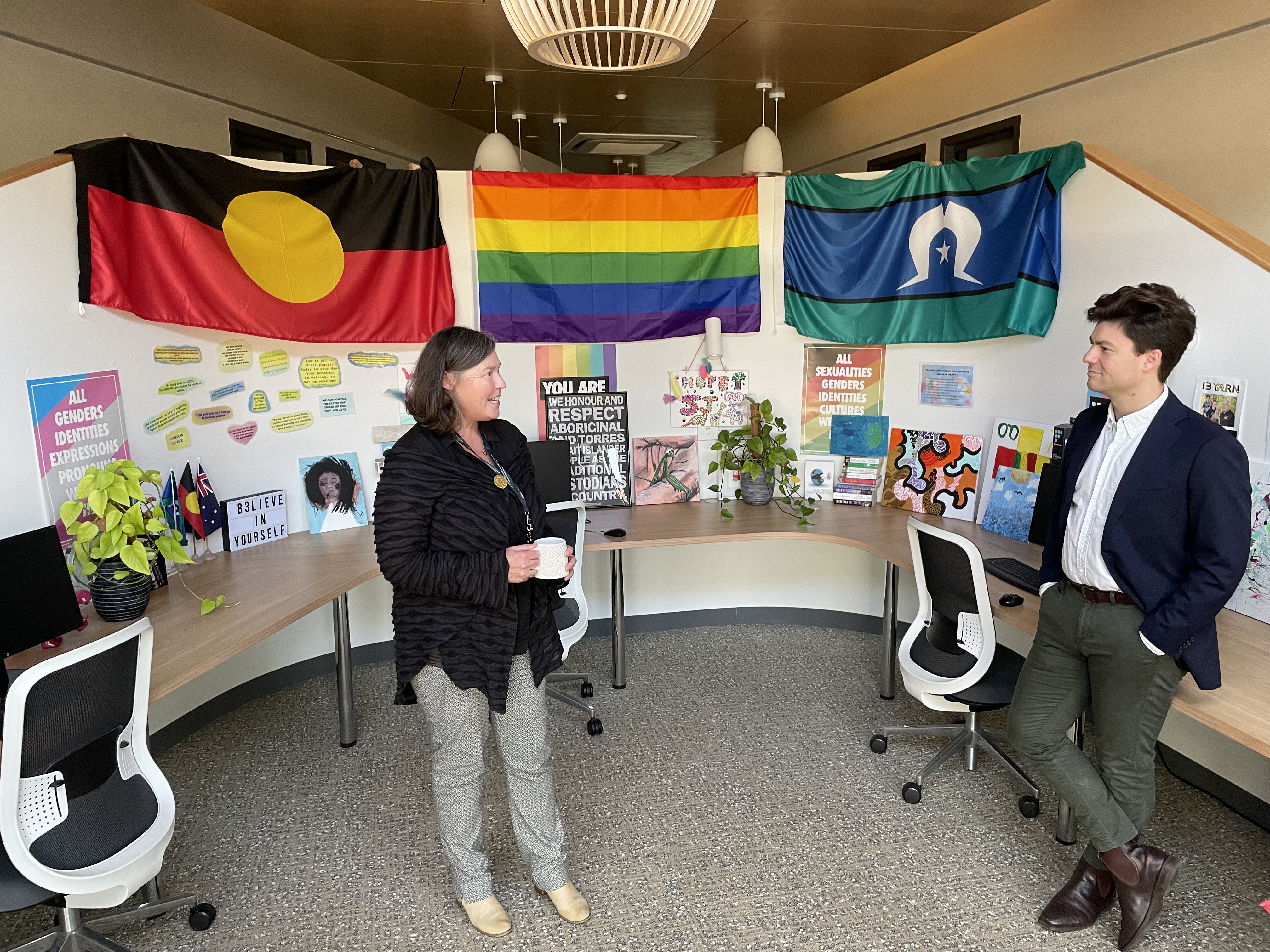
There is a communal study area and kitchen with full pantries and recipe books to help young people relax and feel comfortable to plan and make meals as a valued member of the household and as part of their skills development.
Sam’s tour included a walk through the gardens with water features and edible veggie patches. The site also features art therapy with an art room for young people to enjoy a peaceful place to be creative with paint, drawing and sewing.
Sam and his team were able to see how a large, well-lit recreation room provides comfort and entertainment with bean bags, musical instruments, toys, a game console and television. Such a place is important for young people that have experienced trauma as they can enjoy age-appropriate activities in a safe and comforting space.
This nation leading First Response Youth Service is a quality example of how to support young people and young families in crisis to achieve stability, a sense of security and ways forward in changing their situation and working towards their goals.
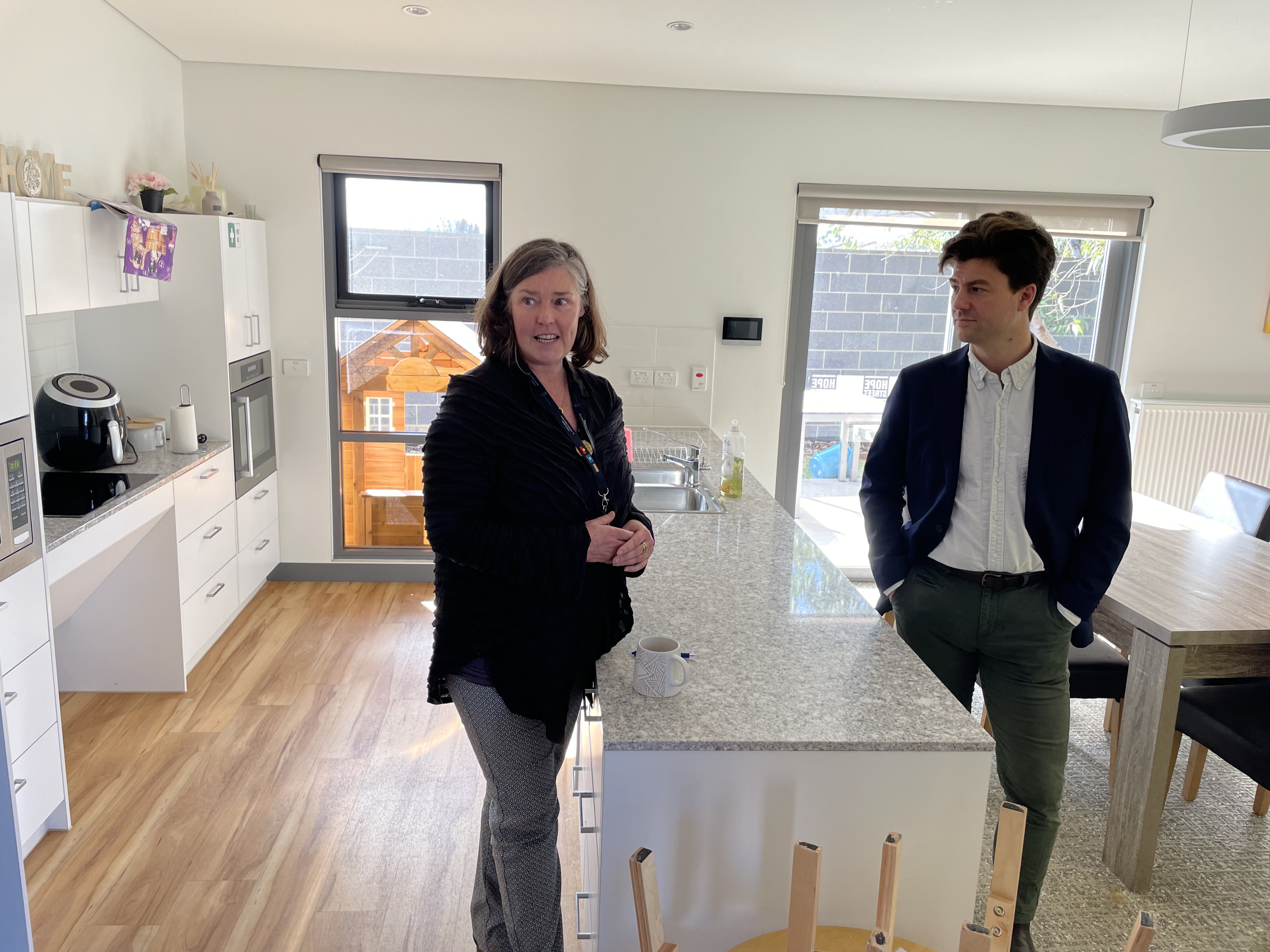
With addressing domestic and family violence a priority for the Albanese Government, Hope Street was able to showcase to Sam Rae MP the importance of high quality, trauma informed, youth specific accommodation and wrap around support and the positive impacts this has on young people and young families as well as the wider community.
Hope Street upholds that housing is a human right and that all young people and their children have a right to a safe place, free from abuse and neglect so that they can thrive and achieve their goals. Hope Street’s philosophy is that resolving homelessness is the responsibility of federal, state and local governments; the community, families and individuals. Hope Street believes that young people and their children have a right to safe, secure, affordable housing and to be treated as equal citizens in our society.
Wear It Purple Day 2024
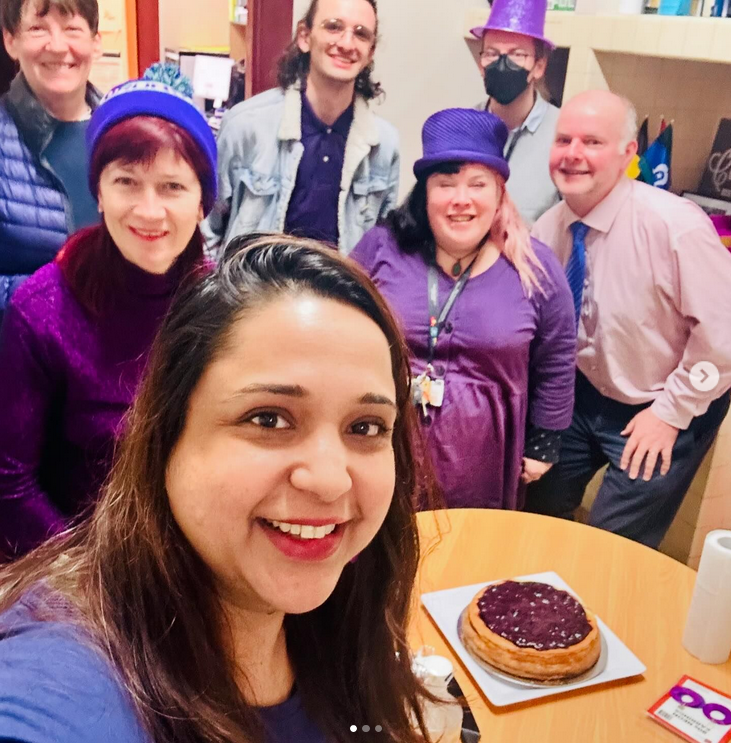
Celebrating rainbow young people for Wear It Purple Day!
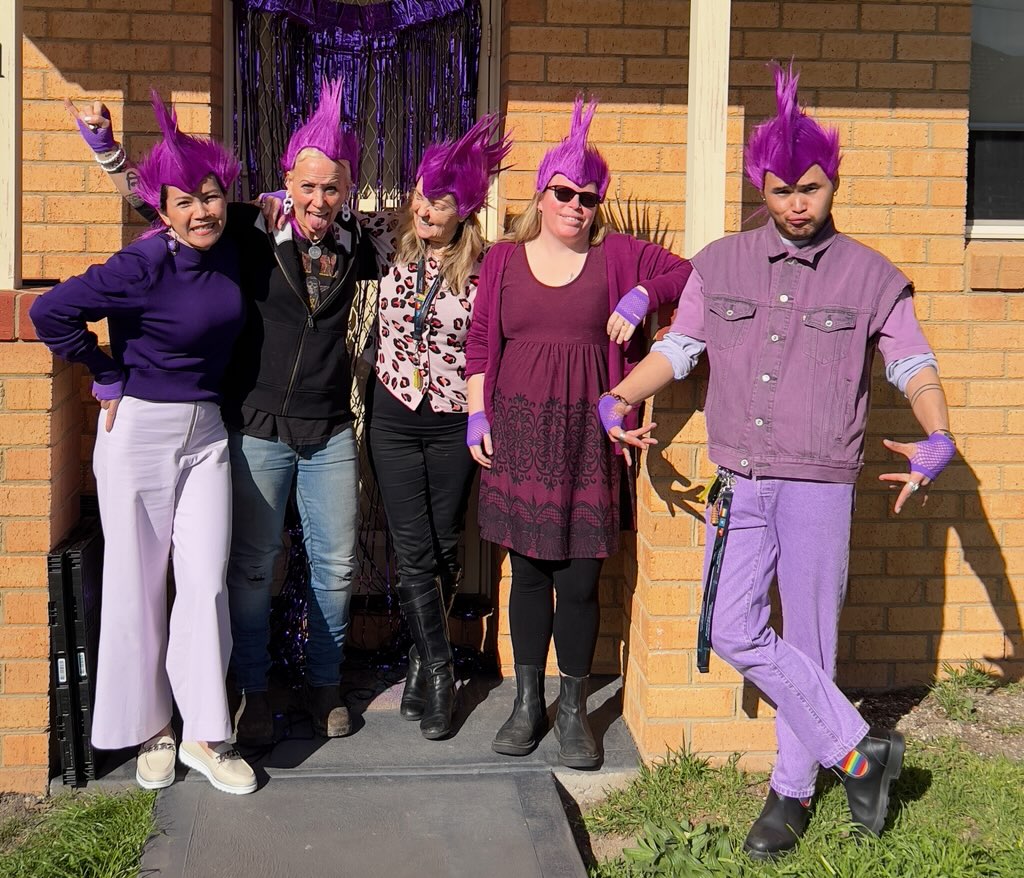
Hope Street celebrated Wear It Purple Day across the different service locations, as well as at the Pride Centre in St Kilda. Wear It Purple Day strives to build supportive, safe, empowering and inclusive environments for rainbow young people.
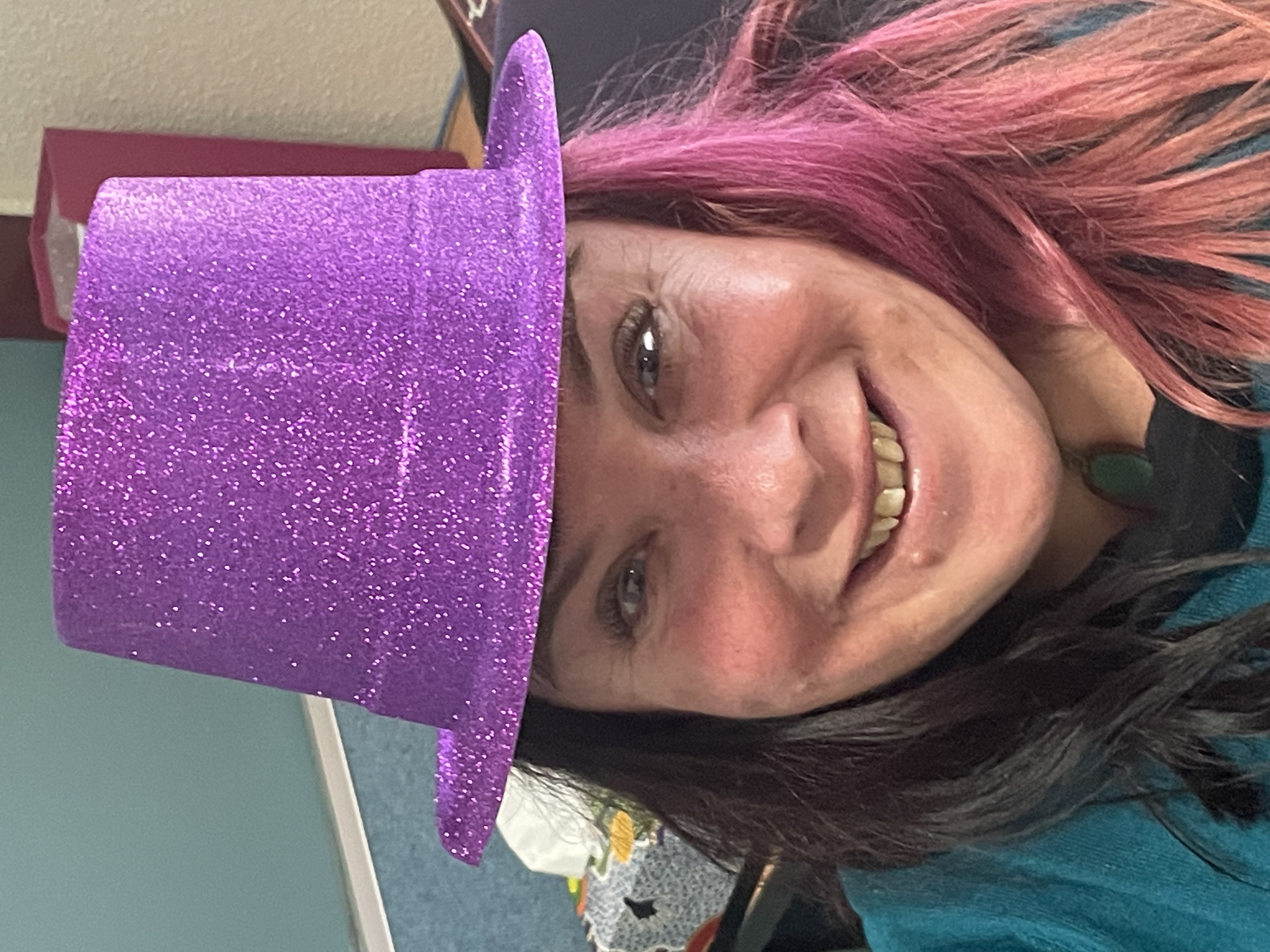
There is a higher risk of experiencing homelessness for rainbow young people. Hope Street upholds that all young people have a right to safe and secure housing and deserve to be celebrated and supported by the community.
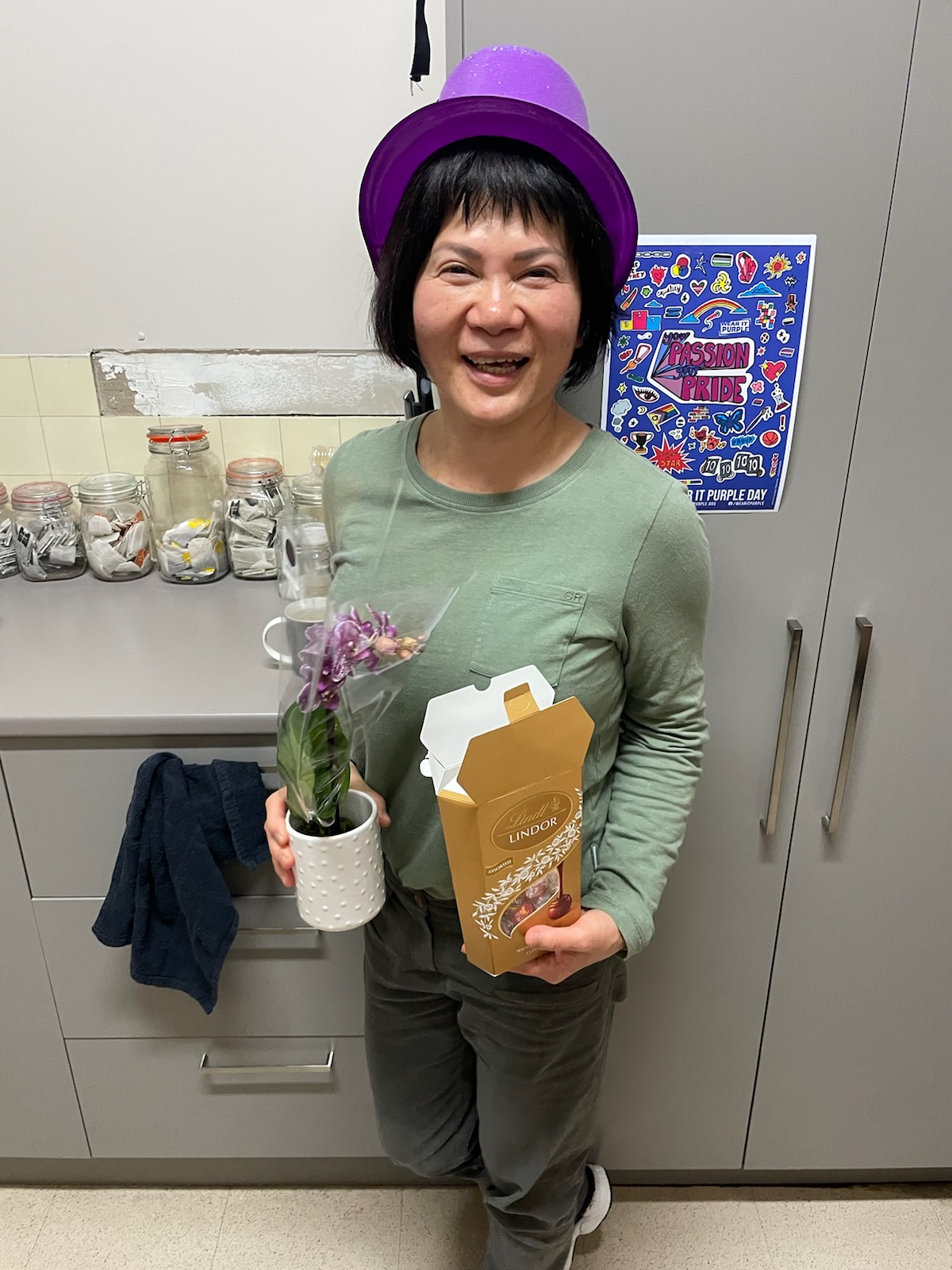
Hope Street activities included wearing it purple, enjoying purple treats, as well as fostering conversations about the importance of delivering high quality inclusive accommodation and services.
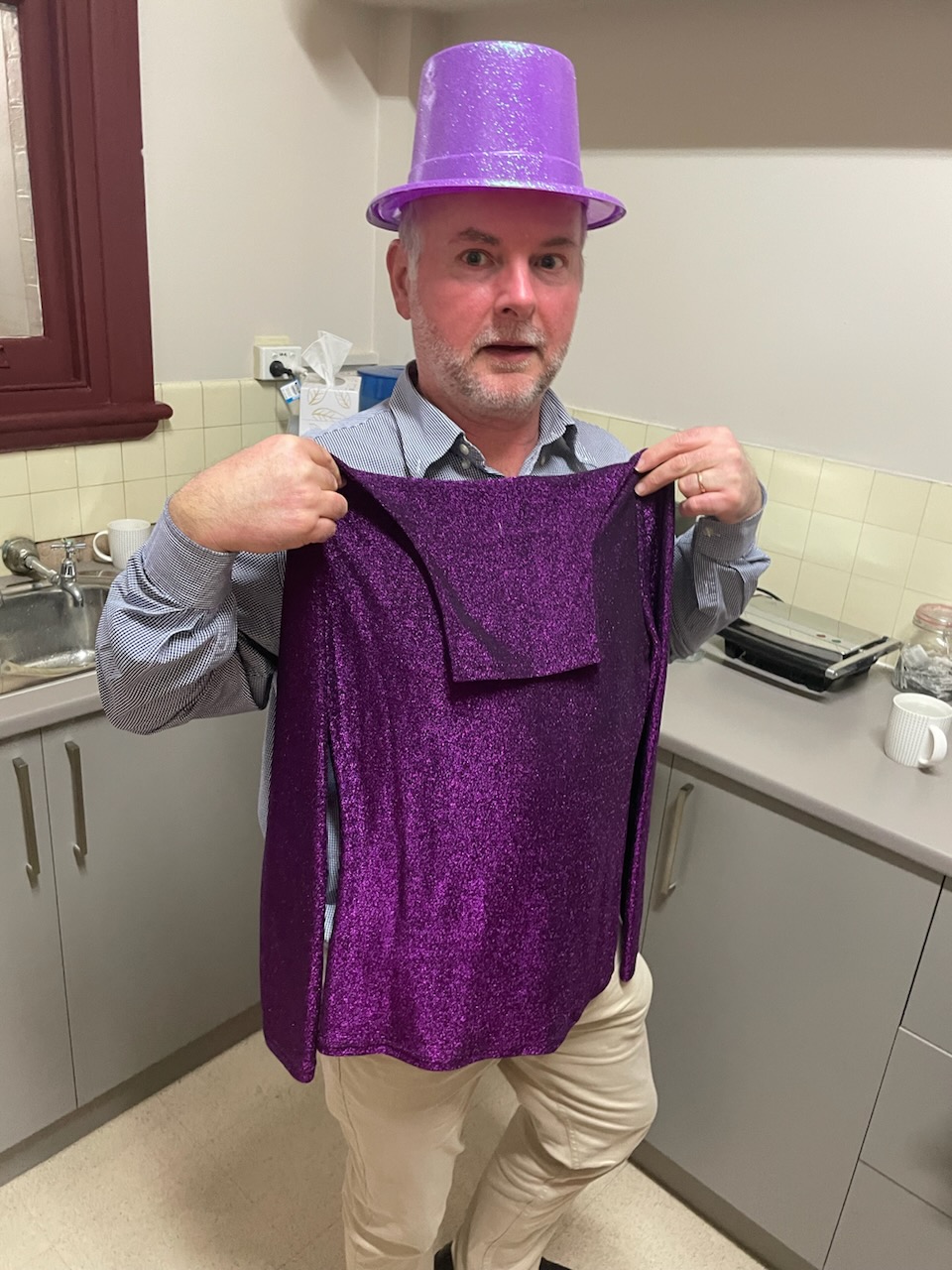
Hope Street also expanded its resources with additional queer themed books for our youth inclusive spaces. Hope Street is committed to enhancing inclusivity of rainbow young people so they can experience safety and a sense of belonging.
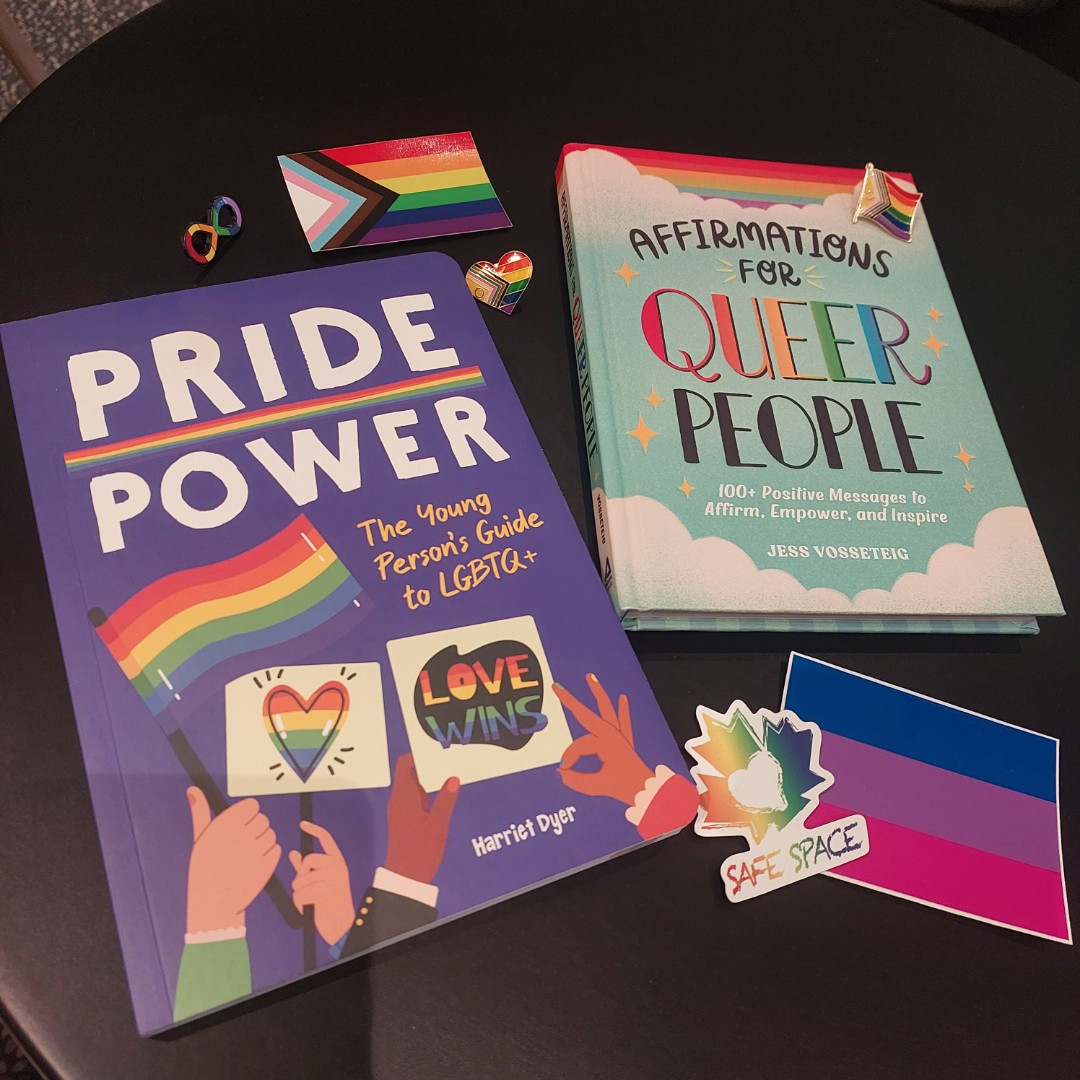
Hope Street matches this year’s theme, ‘Your Passion, Your Pride,’ all year round by ensuring all our youth refuge spaces are inclusive and celebrate queer young people.
Partners eNewsletter
Sign up to have our free quarterly Partners eNewsletter delivered to your inbox and learn more about how Hope Street and its partners are supporting young people and young families who don't have a safe place to call home.
Upcoming Events
Latest News
Popular
Featured Stories
Homelessness - Facts & Stats
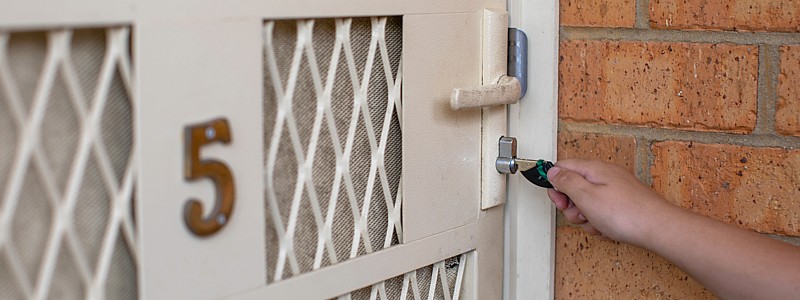
FEATURED PILOT PROGRAM: Hope to Home in Whittlesea
Many young people face obstacles when trying to secure stable accommodation due to no rental history, lack of affordable housing, and no employment to sustain rental leases. The Hope to Home in Whittlesea pilot program will address these issues by:
- Facilitating the transition of up to 30 young people (and their children) from the Hope Street in Whittlesea program or Whittlesea Housing into 1 and 2 bedroom units
- Providing case management once they secure private rental of these units
- Helping these young people maintain their tenancy, employment, education and training, and community connections
- Engaging the support of community stakeholders including local businesses to address barriers contributing to youth homelessness
Please contact us if you would like to become a partner and support at risk young people and young families.


